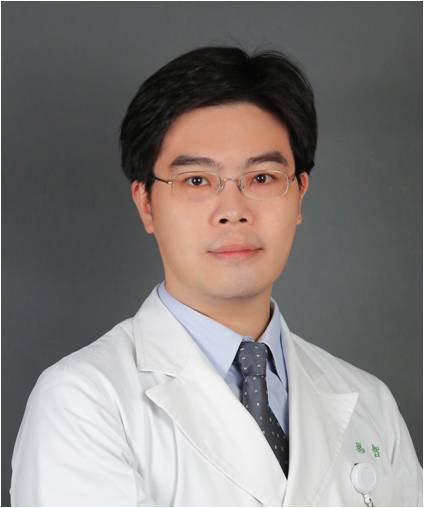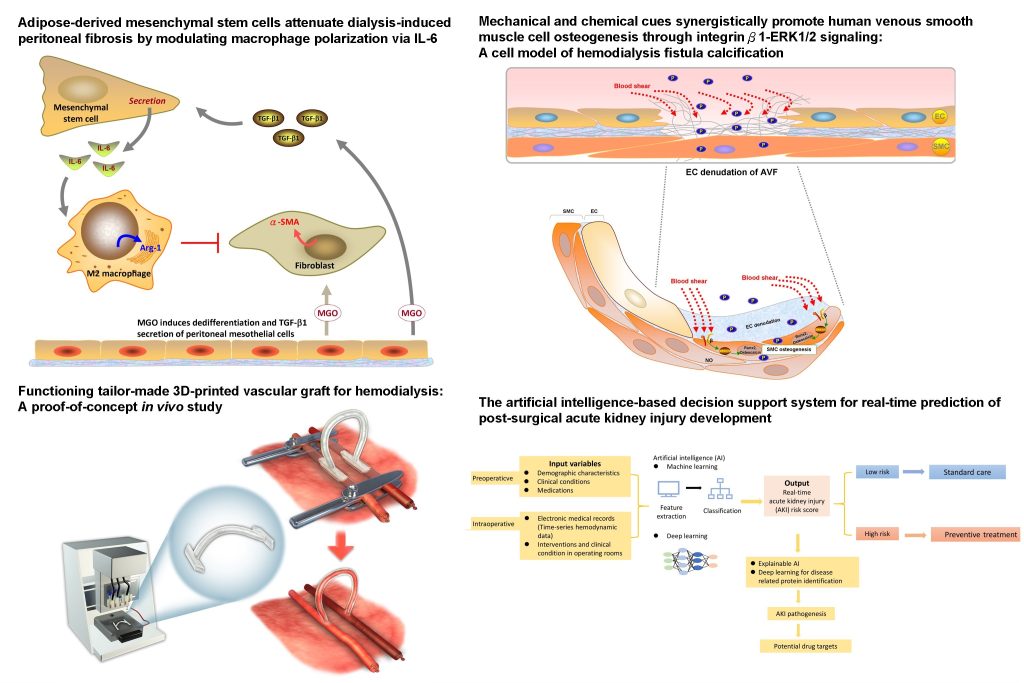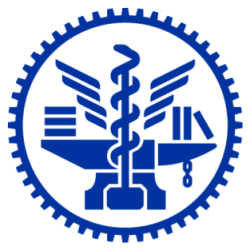
EDUCATION AND POSITIONS HELD:
- MD, Faculty of Medicine, National Yang-Ming University School of Medicine, Taipei, Taiwan, 2002
- PhD, Institute of Clinical Medicine, National Yang-Ming University School of Medicine, Taipei, Taiwan, 2015
- EMBA, National Yang-Ming University School of Life Sciences, Taipei, Taiwan, 2021
- Research Fellow, Institute of Engineering in Medicine, University of California San Diego, USA, 2014
- Director, Division of Clinical Toxicology and Occupational Medicine, Department of Medicine, Taipei Veterans General Hospital, 2021-2022
- Attending Physician, Division of Nephrology, Department of Medicine, Taipei Veterans General Hospital, 2008-Present
- Lecturer, Assistant Professor, and Associate Professor, National Yang Ming Chiao Tung University School of Medicine, 2008-2022
- Professor, Institute of Clinical Medicine, National Yang Ming Chiao Tung University School of Medicine, 2022-Present
HONORS:
- Future Tech Award, National Science and Technology Council, Taiwan, 2017, 2023
- National Innovation Award, Taiwan, 2018, 2021, 2022
- Best Research Article Award (Ranking 1st place), The 5th Congress of Asian Pacific Society of Dialysis Access (APSDA 2021), 2021
- Excellent Teaching Award, Institute of Clinical Medicine, National Yang Ming Chiao Tung University School of Medicine, 2021, 2023, 2024
- Excellent Teaching Award, Faculty of Medicine, National Yang-Ming University School of Medicine, 2014, 2017, 2018, 2019, 2020, 2021, 2022, 2023
- Excellent Teaching Award, Taipei Veterans General Hospital, 2015, 2020
- Taiwan Patent: Method for Treating Peritoneal Fibrosis (No. I 454287), 2014
- US Patent: System and Method for Prediction of Intradialytic Adverse Event and Computer Readable Medium Thereof (US12,020,812), 2024
RESEARCH FIELDS:
- Translational Research, Artificial Intelligence in Medicine, Uremic Vasculopathy
RESEARCH INTERESTS:
- Prof. Yang’s primary research focus is in the field of “Uremic Vasculopathy.” His lab conducts translational research using an integrated approach, including cell experiments, animal models, and clinical sample analysis. Prof. Yang always guides his students with logical thinking and scientific methodology to accomplish their research work in various clinical fields such as oncology, proctology, transplant immunology, rheumatology, and urology. Yang’s lab aims to elucidate the biomechanical molecular mechanisms, translate basic scientific results to human diseases, and improve tissue health in patients.

After an advanced research study, as a Research Fellow at UC San Diego in Prof. Shu Chien’s lab, Prof. Yang has continued his international multidisciplinary collaboration with labs at UC San Diego, the University of Utah, and Boston University. Meanwhile, he was awarded the Future Tech Breakthrough Award from the Ministry of Science and Technology in 2017 and 2023, as well as the National Innovation Award in 2018, 2021, and 2022. Additionally, Yang’s lab has published several articles on the application of artificial intelligence to medical care. Through multidisciplinary measures, Yang’s lab aims to raise the academic performance and the clinical merit of research work to the top level.
RECENT PUBLICATIONS:
[Professor Yang’s Full Bibliography]
- Chih-Yu Yang*, Pu-Yuan Chang, Bo-Sheng Wu, Der-Cherng Tarng, and Oscar Kuang-Sheng Lee. Mechanical and Chemical Cues Synergistically Promote Human Venous Smooth Muscle Cell Osteogenesis through Integrin β1-ERK1/2 Signaling: A Cell Model of Hemodialysis Fistula Calcification. FASEB J. 2021;35(12):e22042. (Impact factor = 5.834)
- Chih-Yu Yang*, Pu-Yuan Chang, Jun-Yi Chen, Bo-Sheng Wu, An-Hang Yang, and Oscar Kuang-Sheng Lee. Adipose-derived Mesenchymal Stem Cells Attenuate Dialysis-induced Peritoneal Fibrosis by Modulating Macrophage Polarization via Interleukin-6. Stem Cell Res. Ther. 2021 Mar 19;12(1):193. (Impact factor = 8.079)
- Yi-Shiuan Liu, Chih-Yu Yang, Ping-Fang Chiu, Hui-Chu Lin, Chung-Chuan Lo, Alan Szu-Han Lai, Chia-Chu Chang, and Oscar Kuang-Sheng Lee. Machine Learning Analysis of Time-Dependent Features Predicts Adverse Events during Hemodialysis Therapy: Model Development and Validation. J Med Int Res. 2021;23(9):e27098. (Impact factor = 7.076)
- Po-Yu Tseng, Yi-Ting Chen, Chuen-Heng Wang, Kuan-Ming Chiu, Yu-Sen Peng, Shih-Ping Hsu, Kang-Lung Chen, Chih-Yu Yang, and Oscar Kuang-Sheng Lee. Prediction of the Development of Acute Kidney Injury Following Cardiac Surgery by Machine Learning. Crit Care. 2020 Jul 31;24(1):478. (Impact factor = 19.334)
- Chih-Yu Yang, Jia-Sin Liu, Wei-Cheng Tseng, Ming-Tsun Tsai, Ming-Huang Lin, Zih-Kai Kao, Yao-Ping Lin, Chih-Cheng Hsu, and Der-Cherng Tarng. Effect of Renin-Angiotensin-Aldosterone System Blockade on Long-term Outcomes in Post-Acute Kidney Injury Patients with Hypertension. Crit Care Med. 2020 Dec;48(12):e1185-e1193. (Impact factor = 9.296)

